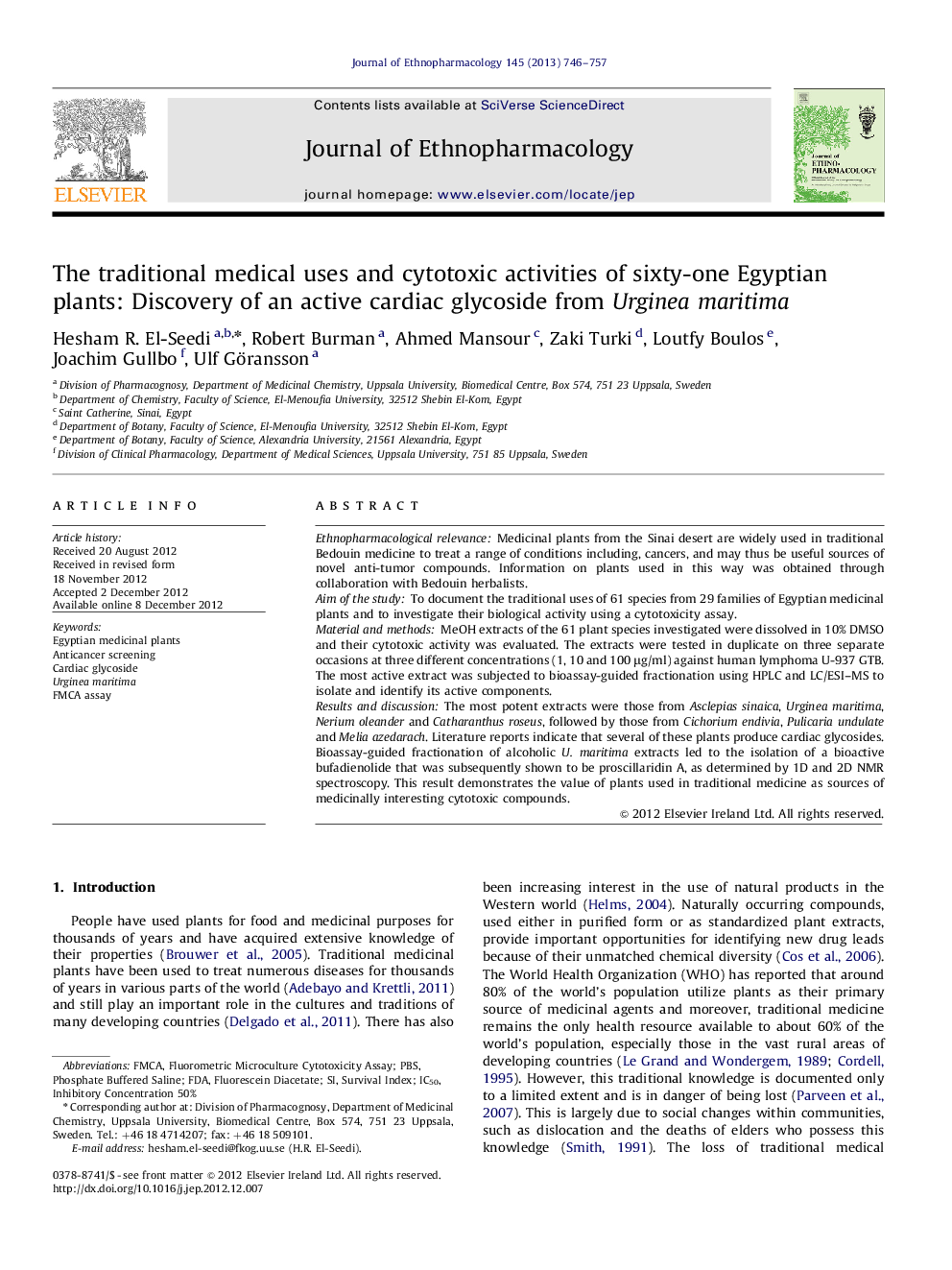| Article ID | Journal | Published Year | Pages | File Type |
|---|---|---|---|---|
| 5837833 | Journal of Ethnopharmacology | 2013 | 12 Pages |
Ethnopharmacological relevanceMedicinal plants from the Sinai desert are widely used in traditional Bedouin medicine to treat a range of conditions including, cancers, and may thus be useful sources of novel anti-tumor compounds. Information on plants used in this way was obtained through collaboration with Bedouin herbalists.Aim of the studyTo document the traditional uses of 61 species from 29 families of Egyptian medicinal plants and to investigate their biological activity using a cytotoxicity assay.Material and methodsMeOH extracts of the 61 plant species investigated were dissolved in 10% DMSO and their cytotoxic activity was evaluated. The extracts were tested in duplicate on three separate occasions at three different concentrations (1, 10 and 100 μg/ml) against human lymphoma U-937 GTB. The most active extract was subjected to bioassay-guided fractionation using HPLC and LC/ESI-MS to isolate and identify its active components.Results and discussionThe most potent extracts were those from Asclepias sinaica, Urginea maritima, Nerium oleander and Catharanthus roseus, followed by those from Cichorium endivia, Pulicaria undulate and Melia azedarach. Literature reports indicate that several of these plants produce cardiac glycosides. Bioassay-guided fractionation of alcoholic U. maritima extracts led to the isolation of a bioactive bufadienolide that was subsequently shown to be proscillaridin A, as determined by 1D and 2D NMR spectroscopy. This result demonstrates the value of plants used in traditional medicine as sources of medicinally interesting cytotoxic compounds.
Graphical abstractDownload high-res image (232KB)Download full-size image
